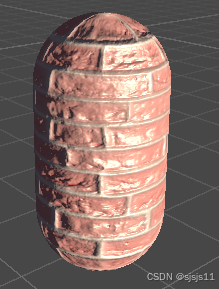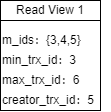文章目录
- 二十三、C++的类型转换
- 1. C语言中的类型转换
- 2. C++类型转换
- static_cast
- reinterpret_cast
- const_cast
- dynamic_cast
- 未完待续
二十三、C++的类型转换
1. C语言中的类型转换
在C语言中,如果赋值运算符左右两侧类型不同,或者形参与实参类型不匹配,或者返回值类型与接收返回值类型不一致时,就需要发生类型转化,C语言中总共有两种形式的类型转换:隐式类型转换和显式类型转换。
隐式类型转化:编译器在编译阶段自动进行,能转就转,不能转就编译失败。
显式类型转化:需要用户自己处理的转换。
void Test ()
{
int i = 1;
// 隐式类型转换
double d = i;
printf("%d, %.2f\n" , i, d);
int* p = &i;
// 显示的强制类型转换
int address = (int) p;
printf("%x, %d\n" , p, address);
}
由于类型转换的可视性比较差,难以发觉,于是C++就提出了四种类型转换的关键字。
2. C++类型转换
标准C++为了加强类型转换的可视性,引入了四种命名的类型转换操作符:
static_cast、reinterpret_cast、const_cast、dynamic_cast。
static_cast
static_cast用于非多态类型的转换(静态转换),编译器隐式执行的任何类型转换都可用static_cast,但它不能用于两个不相关的类型进行转换。相当于C语言的隐式类型转换。
#include <iostream>
using namespace std;
int main()
{
double d = 12.34;
// 将double转换成int
int a = static_cast<int>(d);
cout << a << endl;
return 0;
}

reinterpret_cast
reinterpret_cast操作符通常用于将一种类型转换为另一种不同的类型,相当于C语言的显示(强制)类型转换。
#include <iostream>
using namespace std;
int main()
{
double d = 12.34;
int a = static_cast<int>(d);
cout << a << endl;
int* p = reinterpret_cast<int*>(a);
cout << p << endl;
return 0;
}

const_cast
const_cast最常用的用途就是删除变量的const属性,方便赋值。
#include <iostream>
using namespace std;
int main()
{
// 不让编译器优化,避免将const值存到寄存器中
volatile const int a = 2;
int* p = const_cast<int*>(&a);
*p = 3;
cout << a << endl;
cout << p << endl;
return 0;
}

dynamic_cast
dynamic_cast主要用于继承中。子类转换成父类时,根据赋值兼容规则,是可以直接转换的。但是父类只能转换父类,父类转换子类并不是安全的。而dynamic_cast类型转换则可以帮助检测,如果是父类转换成子类则会返回0。如果安全则正常转换。
#include <iostream>
using namespace std;
class A
{
public:
virtual void f() {}
};
class B : public A
{};
void fun(A* pa)
{
// dynamic_cast会先检查是否能转换成功,能成功则转换,不能则返回
B* pb1 = static_cast<B*>(pa);
B* pb2 = dynamic_cast<B*>(pa);
cout << "pb1:" << pb1 << endl;
cout << "pb2:" << pb2 << endl;
}
int main()
{
A a;
B b;
fun(&a);
fun(&b);
return 0;
}

C语言的强制类型转换关闭或挂起了正常的类型检查,每次使用强制类型转换前,我们应该仔细考虑是否还有其他不同的方法达到同一目的,如果非强制类型转换不可,则应限制强制转换值的作用域,以减少发生错误的机会。强烈建议:避免使用强制类型转换。







![[数据集][目标检测]辣椒病害成熟度检测数据集VOC+YOLO格式2748张5类别](https://i-blog.csdnimg.cn/direct/8338e23385f2416a9a58899c01c94ffa.png)











